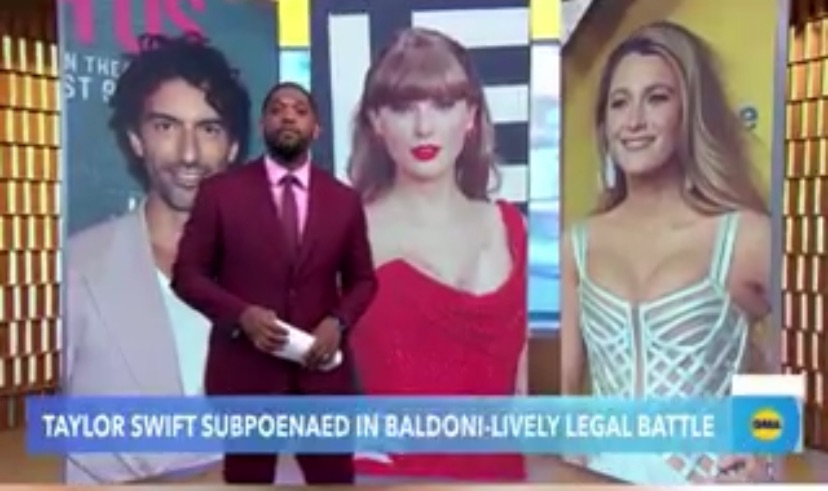CELEBRITY
BREAKING: Taylor Swift’s Spokesperson Defends Singer’s Lack of Involvement in ‘It Ends With Us’ Amid Subpoena in Blake Lively-Justin Baldoni Legal Dispute

Taylor Swift Subpoenaed in Blake Lively-Justin Baldoni Legal Feud Over ‘It Ends With Us’
In a surprising turn of events, Taylor Swift has been subpoenaed as a witness in the escalating legal battle between Blake Lively and Justin Baldoni, stemming from alleged conflicts during the production of the film “It Ends With Us.” Despite Swift’s limited involvement in the project—restricted to licensing her song “My Tears Ricochet” for the soundtrack—the subpoena has thrust her into the center of a contentious dispute that has already drawn significant attention.

The legal feud between Lively and Baldoni, who co-starred and directed the film respectively, intensified when Lively accused Baldoni of sexual harassment and creating a hostile work environment on set. This accusation led to a series of legal maneuvers, including Lively filing a complaint with the California Civil Rights Department and Baldoni countersuing for defamation and other claims. The subpoena of Swift, a longtime friend of Lively, appears to be part of Baldoni’s strategy to explore the influence Lively allegedly wielded over the film’s production, including through her connections with high-profile individuals like Swift and her husband, Ryan Reynolds.
Swift’s spokesperson responded to the subpoena with a statement to “Good Morning America,” clarifying that the pop star’s role in “It Ends With Us” was purely logistical. “Taylor Swift never set foot on the set of this movie, she was not involved in any casting or creative decisions, she did not score the film, she never saw an edit or made any notes on the film, she did not even see ‘It Ends With Us’ until weeks after its public release, and was traveling around the globe during 2023 and 2024 headlining the biggest tour in history,” the statement read. It emphasized that Swift’s only connection to the film was permitting the use of “My Tears Ricochet,” a decision shared by 19 other artists who also licensed their music for the project.
The spokesperson further criticized the subpoena as an attempt to generate tabloid interest rather than focus on the substantive issues of the case. “This document subpoena is designed to use Taylor Swift’s name to draw public interest by creating tabloid clickbait instead of focusing on the facts of the case,” the statement asserted. This sentiment was echoed by Lively’s team, who described the legal actions as part of a broader pattern of intimidation and public shaming, rather than a genuine pursuit of justice.
The backdrop to this legal drama is the film “It Ends With Us,” an adaptation of Colleen Hoover’s novel that explores themes of domestic abuse. The project, which also stars Ryan Reynolds and features a soundtrack including Swift’s music, has been marred by reports of tension between Lively and Baldoni. Baldoni’s lawsuit against Lively and Reynolds alleges that Lively leveraged her relationships with influential figures to exert control over the film, a claim that Lively’s legal team has dismissed as part of an “abuser playbook” designed to deflect from the harassment allegations.
As the case progresses, with a court date set for March 9, 2026, in the U.S. District Court for the Southern District of New York, the involvement of Taylor Swift adds another layer of complexity. While Swift’s direct connection to the film’s production remains minimal, her subpoena underscores the high stakes and public interest surrounding the Lively-Baldoni dispute. The outcome of this legal battle could have significant implications not only for the individuals involved but also for












